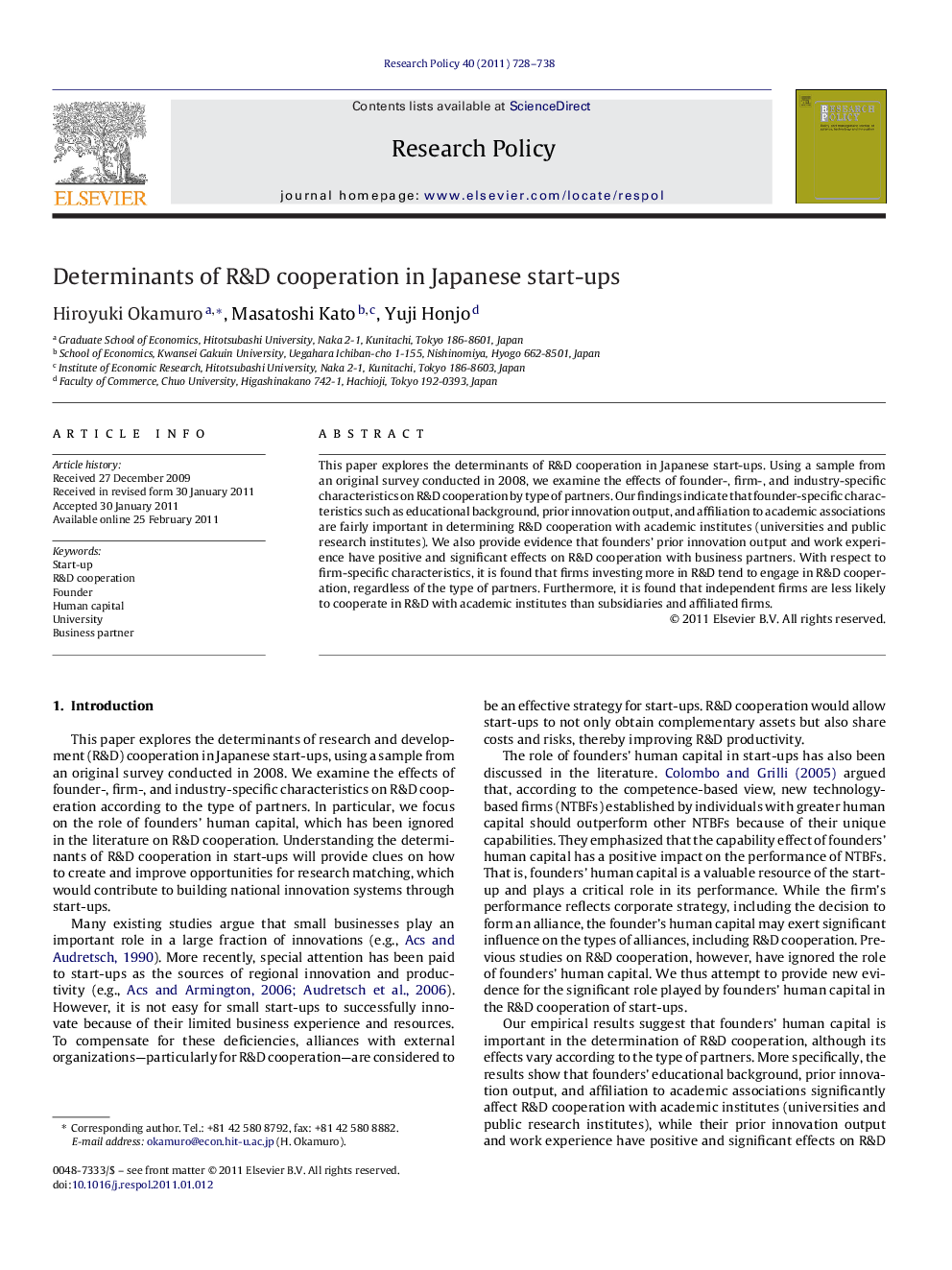| کد مقاله | کد نشریه | سال انتشار | مقاله انگلیسی | نسخه تمام متن |
|---|---|---|---|---|
| 985077 | 934415 | 2011 | 11 صفحه PDF | دانلود رایگان |

This paper explores the determinants of R&D cooperation in Japanese start-ups. Using a sample from an original survey conducted in 2008, we examine the effects of founder-, firm-, and industry-specific characteristics on R&D cooperation by type of partners. Our findings indicate that founder-specific characteristics such as educational background, prior innovation output, and affiliation to academic associations are fairly important in determining R&D cooperation with academic institutes (universities and public research institutes). We also provide evidence that founders’ prior innovation output and work experience have positive and significant effects on R&D cooperation with business partners. With respect to firm-specific characteristics, it is found that firms investing more in R&D tend to engage in R&D cooperation, regardless of the type of partners. Furthermore, it is found that independent firms are less likely to cooperate in R&D with academic institutes than subsidiaries and affiliated firms.
Research highlights
► This paper examines the determinants of R&D cooperation in Japanese start-ups.
► We focus on founder's human capital such as education and business experiences.
► We distinguish cooperation with academic institutes from that with business partners.
► Human capital factors that affect R&D cooperation differ across partner types.
Journal: Research Policy - Volume 40, Issue 5, June 2011, Pages 728–738